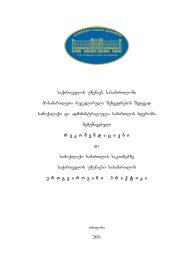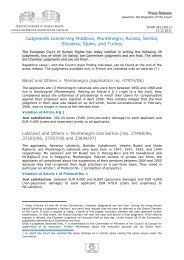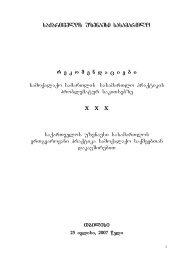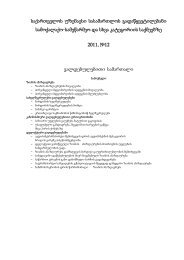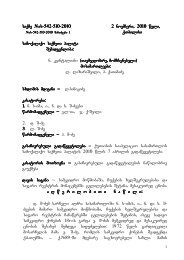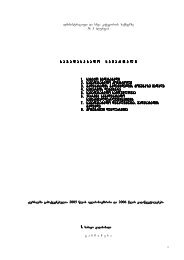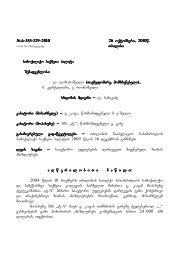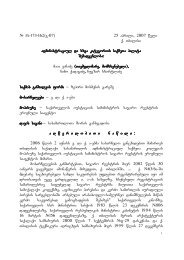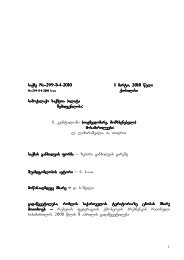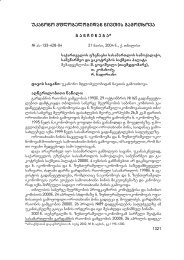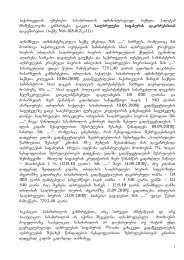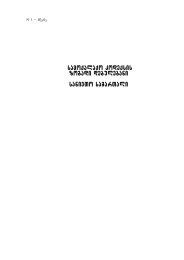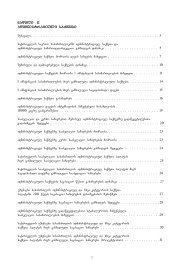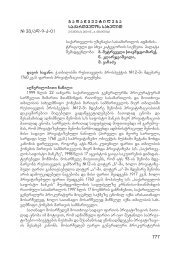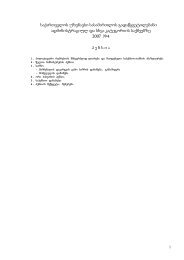marTlmsajuleba kanoni
marTlmsajuleba kanoni
marTlmsajuleba kanoni
You also want an ePaper? Increase the reach of your titles
YUMPU automatically turns print PDFs into web optimized ePapers that Google loves.
Legal Aspect<br />
of Classification of<br />
Customs Regimes<br />
IA KHARAZI<br />
Full Professor, Head of the Program Direction<br />
Legal Faculty at Aviation University of Georgia<br />
NATO UERTASHVILI<br />
Master’s Degree,<br />
Georgina-Britain University of International Law and Governance<br />
TEMUR GERGEDAVA<br />
Master’s Degree, Legal Faculty at Gr. Robakidze University<br />
The customs regimes may be classified according to several features out of<br />
which some are expounded in scientific papers, or scientific and practical<br />
papers, and still some of them are classified for the first time by authors. As<br />
it is properly mentioned in the literature, separating the customs regimes in<br />
groups or dividing them into types have a legal importance first and foremost<br />
for the customs regulation mechanism, for clarifying their roles and for a<br />
comprehensive study of various aspects of the legal regulations thereof.<br />
As a rule, the classification means systemization of solid knowledge. As the<br />
science of logic explains the classification is a way of dividing concepts.<br />
Besides, it is important to observe the rules of classification when making<br />
the classification.<br />
Firstly, we consider that the classification should be made according to each<br />
basis. Failure to observe this rule led to making other mistakes in the<br />
classification. The basis refers to a feature of concept according to which the<br />
latter is assigned to a relevant group (a classification member). In the given<br />
131



